
The Importance of Laundry Segregation in Care Homes
We highlight the importance of best practice procedures when handling laundry in the care home environment, providing tips on how to effectively segregate laundry. As a housekeeper in a care home environment, you are responsible for ensuring the cleanliness and hygiene of the facility, including the laundry. With multiple residents and varying degrees of health conditions and infections, laundry segregation is crucial to prevent cross-contamination and the spread of infections.
1. Why is laundry segregation important?
Laundry segregation is essential in care home environments to prevent the spread of infections. Residents may have different levels of illnesses, including communicable diseases such as influenza, MRSA, and C. diff, and washing their laundry together can increase the risk of cross-contamination. If contaminated laundry is mixed with uncontaminated laundry, the bacteria or virus can spread to other residents or staff members, potentially causing an outbreak.
Never empty dirty laundry onto the floor
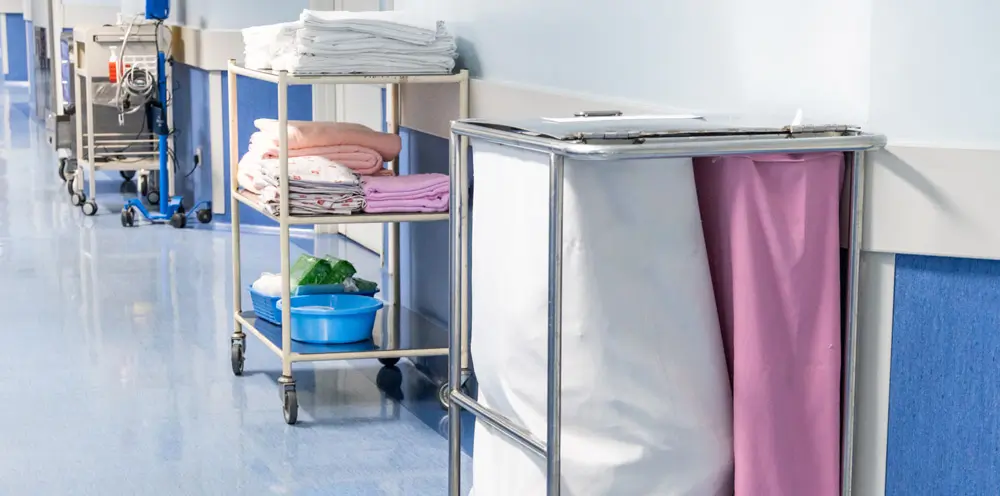
2. How to segregate laundry effectively?
Laundry should be assessed and categorised according to the risk factors, such as the risk of infection or cross-contamination of heavily soiled linen. Always sort bed linen, towels, and clothing of residents with known infections separately, and use disposable gloves, aprons and masks when handling them. Ensure that the laundry machines are disinfected regularly and operated according to infection control protocols. Heavily soiled items may require a sluice pre-wash.
Place infected laundry into appropriate sealed soluble bags
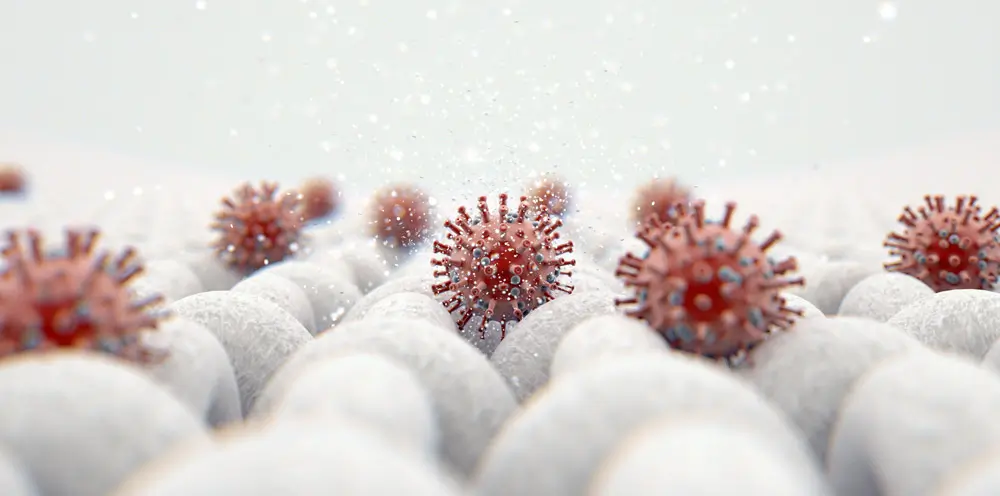
3. Laundry labelling and storage
Labelling of laundry bags and baskets is important to identify which laundry to place where. Certain residents may require special handling, and labelling their laundry accordingly can prevent confusion and avoid mistakes. Ensure visibility of signage and user guides in laundry rooms that indicate best practices for handling and sorting laundry. The storage area should be kept clean and sanitised to avoid the possibility of bacteria growth.
Disinfect laundry trolleys after use and insert clean laundry bags
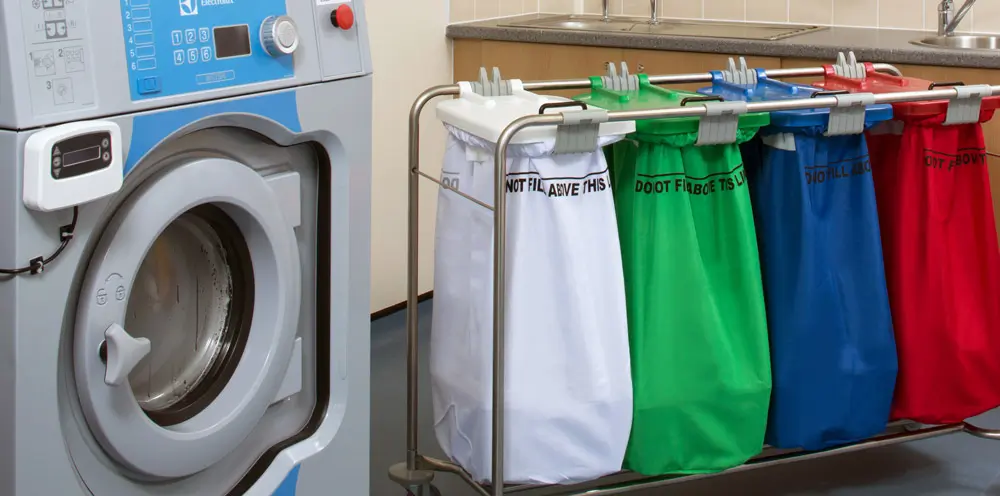
4. The role of Personal Protective Equipment (PPE)
PPE plays a vital role in protecting workers from the risk of infection when handling contaminated laundry. All care home staff should be trained on the correct way to use and dispose of PPE. Use disposable gloves and aprons when sorting contaminated laundry and ensure these are disposed of once complete. Always follow thorough hand hygiene protocol and use fresh PPE after handling infected laundry.
Follow hand hygiene procedures before and after handling laundry
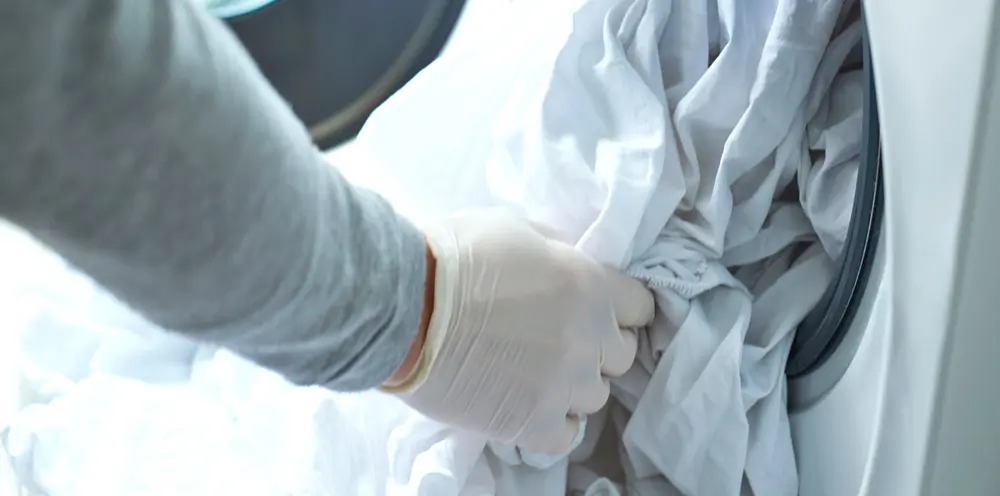
5. Best practice & staff training
All housekeepers and cleaners should receive full training on laundry segregation and infection control protocols. They should understand the importance of laundry segregation, how to segregate laundry effectively, and how to handle contaminated laundry safely. Training programs should be provided regularly to ensure that all staff members are up-to-date with current procedures.
Ensure best practice laundry guides are visible in the laundry room
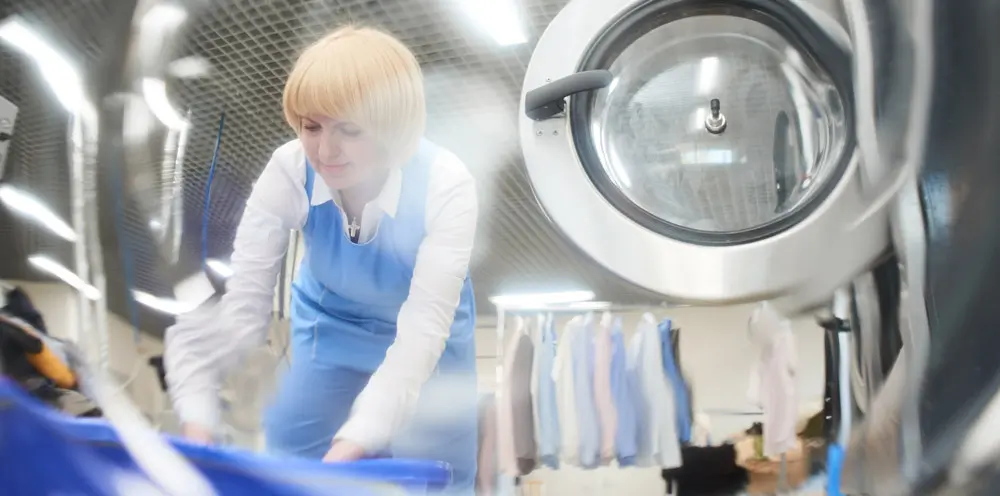
As a housekeeper or cleaner in a care home environment, ensuring good hygiene practices and infection control is crucial to the health and well-being of both staff and residents. Following strict laundry segregation is an essential part of these efforts. By sorting laundry correctly and using PPE, staff members can prevent the spread of infections. Care establishments provide regular training to staff and support the implementation of best practices to help ensure that laundry segregation is both effective and efficient.
NOTE: ALWAYS FOLLOW YOUR ORGANISATIONS GUIDANCE WHEN SELECTING PPE & SEGREGATING LAUNDRY
Take a look at our laundry range
We hold a large range of housekeeping equipment in stock for immediate dispatch.
Contact our team today to find out more call 01226 719090.